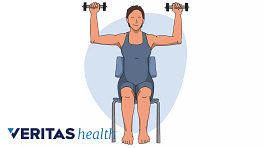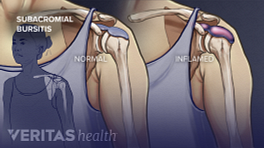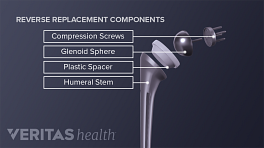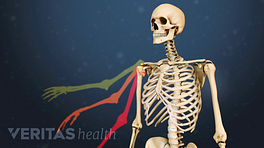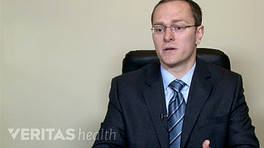Shoulder osteoarthritis can progress very gradually, and sometimes the symptoms may seem to get better only to return later. Many people initially attribute shoulder soreness or stiffness to lack of exercise or getting older. However, shoulder arthritis can progress and eventually interrupt one’s ability to enjoy everyday activities. Early recognition of shoulder symptoms, appropriate modification, and treatment can sometimes slow or eliminate the progression of osteoarthritis symptoms.
What are the Symptoms of Shoulder Osteoarthritis?
Very commonly, a patient will complain of joint tenderness or pain. The pain itself can be centered along the back of the shoulder, although it could be localized diffusely around the shoulder itself. The pain is generally felt in the middle range of motion of the shoulder. There can be a dull aching pain at night which makes it difficult to sleep. The pain may intensify with changes in the weather, which is theorized to be because of changes in barometric pressure. There can be stiffness or a loss of range of motion in the shoulder including its passive range of motion, meaning if someone were to move your arm, you would feel pain even if you were not moving it yourself.
There could be a catching or clicking in your shoulder. And there could be shoulder popping or crunching, the term we use for that is “crepitus”. There may be weakness; if the shoulder hurts, you’re not going to use it, and the muscles become smaller, which leads to muscle atrophy. Inactivity tends to make osteoarthritis worse; patients may often complain that their shoulder feels terrible upon waking in the morning but as the day moves on the shoulder will loosen up and have increased range of motion. In most but not all cases, the symptoms of shoulder osteoarthritis come and go. Shoulder osteoarthritis pain may flare up after high-intensity activities such as tennis or golf, but may be minimal during sedentary activities.


